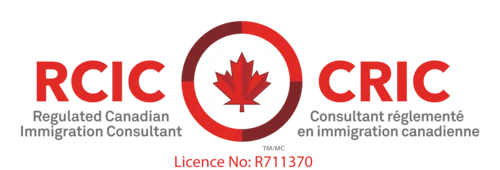Italy study visa
As the tourism hub of Europe and the eighth largest economy in the world, Italy is recognized as an attractive and acceptable destination for individuals interested in immigration, further education, and work. In addition, the high ranking and history of this country’s universities has led to an increase in the number of applications for the Italian study visa each year.
Italy’s currency is the Euro, and its population is approximately 60 million and 400 thousand, making it the fifth-most populous country in Europe and the twenty-third-most populous country in the world. Sabouri immigration group offers free guidance and advantageous services in the field of acquiring an Italian study visa, so that you can progress step-by-step through the admissions procedure and approach your objective.
Advantages of an Italian student visa:
If you are interested in studying in Italy and have chosen this state in order to advance and develop in your preferred career, you should continue reading to learn more about the advantages of an Italian study visa. Several of these advantages include:
- Superior educational quality
- Italy has a reasonable and affordable tuition rate
- The prospect of Iranian applicants getting scholarships
- Italian colleges occupy the highest ranks in the world
- High standard of living in Italy
- The opportunity to study in English
Italian study visa requirements:
visa requirements in Italian primary schools:
Included in the curriculum of Italian schools are:
Kindergartens: this 3-year course is for children ages 3 to 6; although kindergarten education is not mandatory in Italy, the number of pupils enrolled in this stage is growing.
Primary school: This stage of schooling begins at age 5 and is a form of obligatory education.
Secondary school: this stage is for children aged 11 to 14, and it is required to offer both general and specialized courses based on the level of difficulty.
High schools: High school students’ range in age from 14 to 19, and they must meet a variety of academic requirements to join college. A certificate of completion of the preparatory high school course is required for admission to high school. In addition, this course provides students with particular objectives and guidelines for future professions and further education.
Italy undergraduate study visa requirements:
The duration of a bachelor’s degree program in Italy is between three and six years, and a passing score on the entrance examination is required for admission to the universities of this country. Some universities and fields of study, however, offer admission without examination.
Undergraduate students can work 20 hours per week to finance their expenditures.
Master’s degree visa requirements for study in Italy:
The process of earning a master’s degree in Italy takes two years, and instruction in these courses is provided in both Italian and English. You must provide one of these two language proficiency documents to qualify for the scholarship.
To enroll in a master’s program in Italy, you must have all of your undergraduate transcripts translated into English and earn a minimum IELTS score of 6. A scholarship worth up to 7,000 euros a year is one of the benefits of studying in Italy.
Conditions for doctorate study visas in Italy:
The duration of doctoral studies in Italy is between three and five years. To study at this level, an English or Italian language certificate is required, and there is also the potential of receiving a scholarship for those who wish to enroll in these courses.
To study at the PhD level in Italy, you must submit translated transcripts of your diploma, pre-university, bachelor’s, and master’s degrees, as well as a minimum IELTS score of 6.
Study visa requirements in Italy for the professions of medicine and dentistry:
Due to the existence of the world’s most prominent medical and dental schools, Italy is regarded as one of the best countries for immigration and continuing study. The excellent level of education and low cost of studying medicine and dentistry in this country have attracted many applicants.
In order to be admitted to the medical sector in English in Italy, you must take the AIMET exam, which is administered once a year in the world’s largest cities and contains the topics mathematics, physics, chemistry, biology, general knowledge, and intellect.
For those interested in studying medicine in Italian, the TOLC-MED examination is required.
Documents required to obtain an Italian student visa:
After identifying their desired university and field of study, visa applicants must complete the following requirements:
Diploma and pre-university degree translations, as well as transcripts, translated into Italian with Ministry of Justice and Ministry of Foreign Affairs approval.
- The translation of bachelor’s and master’s degrees for applicants seeking a doctoral-level study visa.
- Applicants seeking a master’s degree study visa must provide a description of the bachelor’s degree courses they have completed in Italian or English.
- Formalizing visa applications
- Providing two copies of the university’s admission letter is required.
- Italian translation of birth certificate
- Bank statement in Latin for the past three months
- Two copies of the passport’s first page and acceptance together with copies of all academic credentials and pages from the Persian language
- Hotel reservation from the date of the airline ticket through at least the first 20 days of the stay
- A bank letter (in Italian) with a minimum account balance of 7,500 euros every academic year in Italy, in the name of the applicant or one of the student’s parents.
- Possessing an English language certificate at the B2 level or spending at least two academic years enrolled in one of the English-language courses (if you do not need a language certificate, you must receive the relevant letter from the university.)
- 5 to 7 colored photographs measuring 3.5 x 4.5 cm with captions
- Valid passport
- Reservation of a flight ticket and lodging together with a copy
- Cash amounting to 100 euros
- Clearances
- Receipt of financial payments
- Insurance
- Recommendation letters from professors for master’s and doctorate degrees
- Provide motivation letter
- Proposed study plan
- submitting a statement of financial competence and approval
Requirements for studying in Italy without a certificate of language proficiency:
For entrance to Italian universities, applicants without a language certificate must demonstrate an intermediate level of Italian language education.
International students are required to possess an Italian language certificate such as CILS or CELI at the majority of top Italian universities. It is permitted for English-speaking students to study in Italy without having taken either the TOEFL or IELTS.
If the applicant is not proficient in Italian at the time of enrollment, many international courses will be held for students at universities that need an Italian language certificate at the level b2 or an English language certificate at the level IELTS 6.
The following universities accept admission applications without IELTS or TOEFL scores:
- University of Milan
- University of Florence
- University of Pisa
- University of Padua
- University of Naples Federico II
- University of Trento
- University of Bologna
- University of Verona
- John Cabot University
- Sapienza University of Rome
Essential requirements for acquiring an Italian student visa:
If you are not a citizen of the European Union and wish to study in one of Italy’s famous colleges or institutions, you must first obtain a study visa for this country.
To obtain an Italian study visa, it is necessary to visit the country’s embassy after preparing the necessary paperwork.
Initially, there are no age limitations or requirements for students applying to study in Italy. However, the age limit for winning an Italian scholarship is one of the factors that must be considered. According to the terms of this agreement, Italian education costs are not covered for individuals under the age of 18.
Italian study visa fee:
Education at all levels is free for Italian citizens, but overseas students must pay to study in Italy. However, Italy is one of the least expensive European countries in which to study, with tuition costs beginning at €900 per year and rising to €4,000 per year at Italy’s top universities.
The annual tuition at a very famous Italian university averages 3000 euros. On the other hand, tuition at private universities is between 6,000 and 20,000 euros per year, which exceeds these amounts.
The projected average cost of studying in Italy is as follows:
Bachelor’s and master’s level education is projected to cost between 1,000 and 7,500 euros per year, with substantial discounts available under favorable conditions.
The annual tuition fees for PhD studies at public universities in Italy range between 140 and 1200 euros per year.
Private universities charge higher tuition than public universities, which is the same for both international and European students. Private university tuition in Italy is between 6,000- and 20,000-euros year on average.
Living expenses in Italy:
If you have decided to obtain a study visa and come to Italy, you need acquire the required information about daily expenses and life in Italy prior to your arrival.
A person’s monthly living expenses are projected to range between 750 and 1,500 euros, depending on the city in which they reside. Rome is regarded as one of the most desirable places to live in Italy, which results in a higher cost of living.
The greatest expense for each immigrant is his monthly rent, which averages between 200 and 300 euros. Also, if the student wants to rent the residence on his own, he must pay between 500 and 700 euros. Other projected living expenses in Italy are as follows:
Cost per meal: $5 to $12
Cost of transportation: 35 euros per month
Entertainment expenses: 30 to 40 euros per month
Italian study visa grants and scholarships:
Italian universities offer two sorts of scholarships to native students, EU students, and non-EU students, and this scholarship will cover a number of prominent courses.
- Medical scholarship
- Dental scholarship
- Pharmacy scholarship
- Architecture scholarship
- Art scholarship
Provincial Italian Scholarship (DSU):
The Italian provincial scholarship DIRITTO ALLO STUDIO UNIVERSITARIO (DSU), which is determined annually by the government of this country and is designated for university study, is awarded to Italian students. The crucial aspect is that each province’s scholarship department awards Italian provincial scholarships to students of all levels each year.
The Italian provincial scholarship for undergraduate and graduate students is approximately 5,000 euros, which covers tuition and other expenses.
Italian university scholarships:
A university scholarship is granted to a student based on specific criteria, such as a résumé, grade point average, and academic transcripts, and is frequently given to doctorate candidates. In addition, students can try their luck at receiving a bachelor’s scholarship with a diploma after completing their second year of study if they have passed a particular number of courses.
Students who intend to teach English in the engineering, economics, or law disciplines are also eligible for a different sort of scholarship.
Application steps for an Italian study visa:
- Visa applications submitted to the Italian embassy or consulate
- Collecting the necessary documentation
- Submitting the necessary paperwork at the allotted time
- Conducting in-person interviews
- Issuance of an Italian student visa
- Migration
Visa applications submitted to the Italian embassy or consulate:
You must apply for an Italian student visa at the Italian embassy or consulate.
Collecting the necessary documentation:
You must gather all necessary documents and submit them in person on the specified date.
Submitting the necessary paperwork at the allotted time:
It is required to submit all documents in their entirety and with the requested information; the application processing time is approximately three weeks.
Conducting in-person interviews:
After receiving an interview appointment from the Italian Embassy, you will be prepared to conduct the in-person interview.
Issuance of an Italian student visa:
The Italian embassy or consulate will approve or deny your application for a study visa; if authorized, you can prepare to take the Italian study visa and study immigration.
Migration:
After completing the preceding stages, you will be able to enter Italy.
In order to accomplish all of these phases and achieve total success in this procedure, we recommend contacting our senior professionals to simplify the path, prevent request denial, and avoid typical errors. Sabouri Immigration Group is prepared to supply you with any services despite having a rich history and significant experience in this field.





